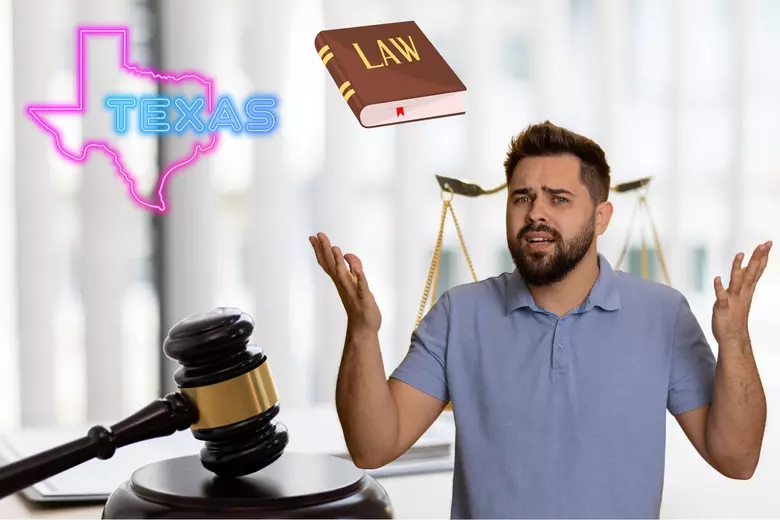When we talk about local government in Texas, we often encounter various types of authorities and structures. One of these is the Type A General Law Texas Authority. It sounds complicated, but don’t worry we’re going to break it down in simple terms. The Type A General Law authority is a set of rules for running small towns and cities in Texas. If you’ve ever wondered how these local governments operate and make decisions, this is the place to start. You can also read this Texas Law on Binding Contracts: What You Need to Know
What Is Type A General Law Texas Authority?
To understand what Type A General Law Texas Authority is, imagine a basic guidebook for small towns. This guidebook helps them figure out how to run things like parks, streets, and even local police. It’s not as detailed or flexible as other types of rules, but it’s straightforward and easy for small communities to use.
How Does Type A General Law Texas Authority Work?
In Texas, local governments can operate under different sets of rules. Type A General Law is one of the simplest ways for towns to be organized. Think of it as a “one-size-fits-all” solution for very small cities and towns. These rules cover how the town should be run, including how decisions are made and who is in charge. It’s like having a simple recipe to follow when you’re cooking a meal—easy and clear.
Key Features of Type A General Law Texas Authority
- Simple Structure: The Type A General Law provides a straightforward framework. It’s less complicated than other forms of government organization, making it easier for small towns to manage their day-to-day operations.
- Town Governance: Under this system, towns have a council or board that makes important decisions. The council usually consists of elected members who represent the community.
- Mayor-Council System: The Type A General Law often uses a mayor-council system where the mayor has certain powers, but many decisions are made by the council as a group.
- Limited Powers: Compared to cities with more complex rules, those under Type A General Law have limited powers. This means they follow the basic rules and don’t have as much flexibility to create new regulations or policies.
The Role of the Mayor and City Council
In a Type A General Law town, the mayor and city council play important roles. The mayor is like the captain of the ship, helping to lead the town. The city council, on the other hand, is like the crew that helps make decisions. Together, they work to make sure the town runs smoothly. They handle everything from fixing roads to managing local services.
How Type A General Law Authority Affects Daily Life
For residents of a Type A General Law town, the effects are quite noticeable. The rules help ensure that the town runs in a way that is fair and predictable. For example, if the town needs to build a new playground or repair a street, the decisions are made according to the guidelines set out by the Type A General Law. This means that residents can expect consistency and transparency in how their town is managed.
Comparing Type A General Law to Other Types
Texas has different types of local government systems. For example, larger cities might use a “Home Rule” system, which gives them more flexibility in how they operate. Type A General Law, on the other hand, is more rigid but simpler. It’s a bit like comparing a basic phone to a smartphone—one is straightforward and easy to use, while the other has more features but can be more complex.
Benefits of Type A General Law Authority
- Simplicity: The major benefit is its simplicity. It’s easier for small towns to follow a set of clear, straightforward rules without getting bogged down by complex regulations.
- Cost-Effective: It’s also cost-effective. Small towns don’t need to spend a lot of money on legal advice or complicated systems to manage their local government.
- Predictability: With Type A General Law, residents know what to expect from their local government. This predictability can lead to greater community trust and stability.
Challenges of Type A General Law Authority
While there are many benefits, there are also some challenges. Because the rules are simple and fixed, it can sometimes be hard for towns to adapt to new situations or challenges. If a town wants to make changes or introduce new policies, they might find themselves limited by the existing rules.
Real-Life Examples
Imagine a small town in Texas that operates under the Type A General Law Authority. The town’s mayor and city council decide to build a new library. They follow the guidelines set out by the Type A General Law to plan and execute this project. The process is straightforward and ensures that everything is done according to the rules. However, if the town wants to introduce new regulations that go beyond the basic framework, they might face limitations.
The Future of Type A General Law Texas Authority
As Texas continues to grow and change, there might be discussions about updating or modifying the Type A General Law. While it has served many small towns well, evolving needs and new challenges might prompt changes. It’s important for communities and leaders to stay informed and consider how their local government structures best serve their needs.
Conclusion
The Type A General Law Texas Authority plays a crucial role in the governance of small towns in Texas. It provides a clear and simple framework that helps these communities manage their affairs efficiently. While it has its limitations, it also offers a predictable and cost-effective way for small towns to operate. Understanding how it works can give residents a better appreciation of their local government and how decisions are made.
By knowing more about the Type A General Law Authority, you can better understand the structure and functioning of local governments in Texas. It’s all about keeping things simple and manageable, ensuring that even the smallest communities can thrive.





